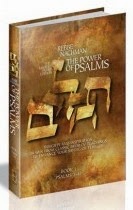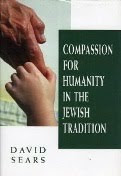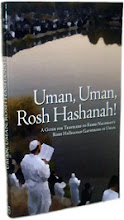Painting by Fenna Moehn-Hummel
Dovid Sears
Parshas Miketz
L’zekher nishmas my cousin Avigdor ben Shmuel (Jim Smotrich)
Before I found my way to Breslov, I explored Chabad for several years. In 1979, when we were still living in my hometown of Norwich, Conn., I took the kids to Crown Heights on several occasions. In 1981 we moved to Providence, and maybe a year later, the whole family drove to Crown Heights to celebrate Yud-Tes Kislev with the Lubavitcher Rebbe in person.
The next morning, after a huge farbrengen (gathering) that lasted into the early morning hours, I davenned a little later than usual, a luxury to which I was unaccustomed in Providence. Then I took the family out for lunch (another luxury for “out-of-towners”); packed up the car; and returned to 770 in search of an early Minchah. However, to my surprise, there were no early minyanim.
Seeing a short, elderly, white-bearded Chassid wearing a black fur hat, I approached him and asked if he knew when there would be a minyan. "Three o'clock by the Rebbe," he answered with a smile in heavily-accented English.
"That's more than an hour away," I sighed. "My family is waiting for me outside. I guess I’ll have to daven bi-yechidus(alone).”
"You can't wait just one more hour to see the Rebbe?" he asked gently.
"I have to drive over four hours to get home," I explained apologetically.
He looked at me with a twinkle in his eye. "Then let me leave you with a vort (short teaching) on the parshah from my Zeide (Grandfather), olov ha-sholom." (Since the elderly chassid appeared to be around eighty years old, that would suggest that his grandfather must have been lived in the 1800s, although he might have survived into the 1900s.)
Eager to daven and leave, but not wanting to be impolite, I asked him to tell me the vort.
"At the beginning of the parshah [Miketz], when Paroh (Pharaoh) has his dream, he tells his dream-interpreters that he was omed al ha-y'or - 'standing on the river.' But when he hears about Yosef and calls him out of prison, and Yosef is right there in front of him, Paroh retells the dream a little differently. He says that he was standing al sfas ha-y'or - 'on the bank of the river.'
"Before he met the tzaddik, Paroh thought he could walk on water! But when he finally saw Yosef in person, he stopped fooling himself. Now he knew that he was only a bosor vo-dom, only a plain human being.
"This was my Zeide's vort!"
I thanked him warmly, davenned Minchah alone in 770, hurried back to the car, and headed for home. When we got to Stamford, Conn., about an hour away, we pulled into a gas station. As I filled the tank, I began to reflect on the old chassid'svort. Only then did I have enough mental focus to realize what he had meant to tell me - to see a tzaddik is a precious thing! It can awaken a man from a lifetime of self-deception. Therefore, how could I hurry away so quickly, missing an opportunity to daven Minchah with the Rebbe?
During another visit to Crown Heights, I noticed the famous Reb Abba Pliskin, of blessed memory, shuffling along the sidewalk on Kingston Avenue. I wondered if he was the old chassid who had told me that penetrating insight after Yud-Tes Kislev. However, when I approached him and asked, Reb Abba professed ignorance and continued on his away. "Who could the old man have been?" I wondered. “ Eliyahu ha-Novi?”
The Rebbe, Reb Nachman of Breslov, zatzal, tells us something similar, if not identical. In Torah 67 in Likutey Moharan Tinyana, he expounds on the connection between the first and last words of the Torah: bereishis (“In the beginning”) andl’einey kol Yisrael (“In the eyes of all Israel”). He cites the Tikuney Zohar that the letters of the word bereishis may be rearranged to spell rosh-bayis (“head of the house,” i.e., the tzaddik of the generation). When the tzaddik who is the “head of the house” is revealed, our eyes are opened and we can begin to examine ourselves and see where we stand in our spiritual work of self-refinement. As a result, we can return to Hashem and purify ourselves, so that we may see the light of Hashem in all things.
The Rav of Tcherin in his commentary Parpara’os l’Chokhmah on Likutey Moharan I, 4, states that the tikkunim obtained by being in the presece of the taddik are still available when we learn his teachings—since the daas of the tzaddik is truly the “face of the tzaddik, and may be found in his teachings.
In the zekhus of the tzaddikim, may all of our eyes be opened—as it states, l’einey kol Yisrael, “in the eyes of all Israel.” Then, as in the case of Yosef, whom the King of Egypt called “Revealer of Secrets,” the “secrets” of G-dliness will be revealed in this world.
























